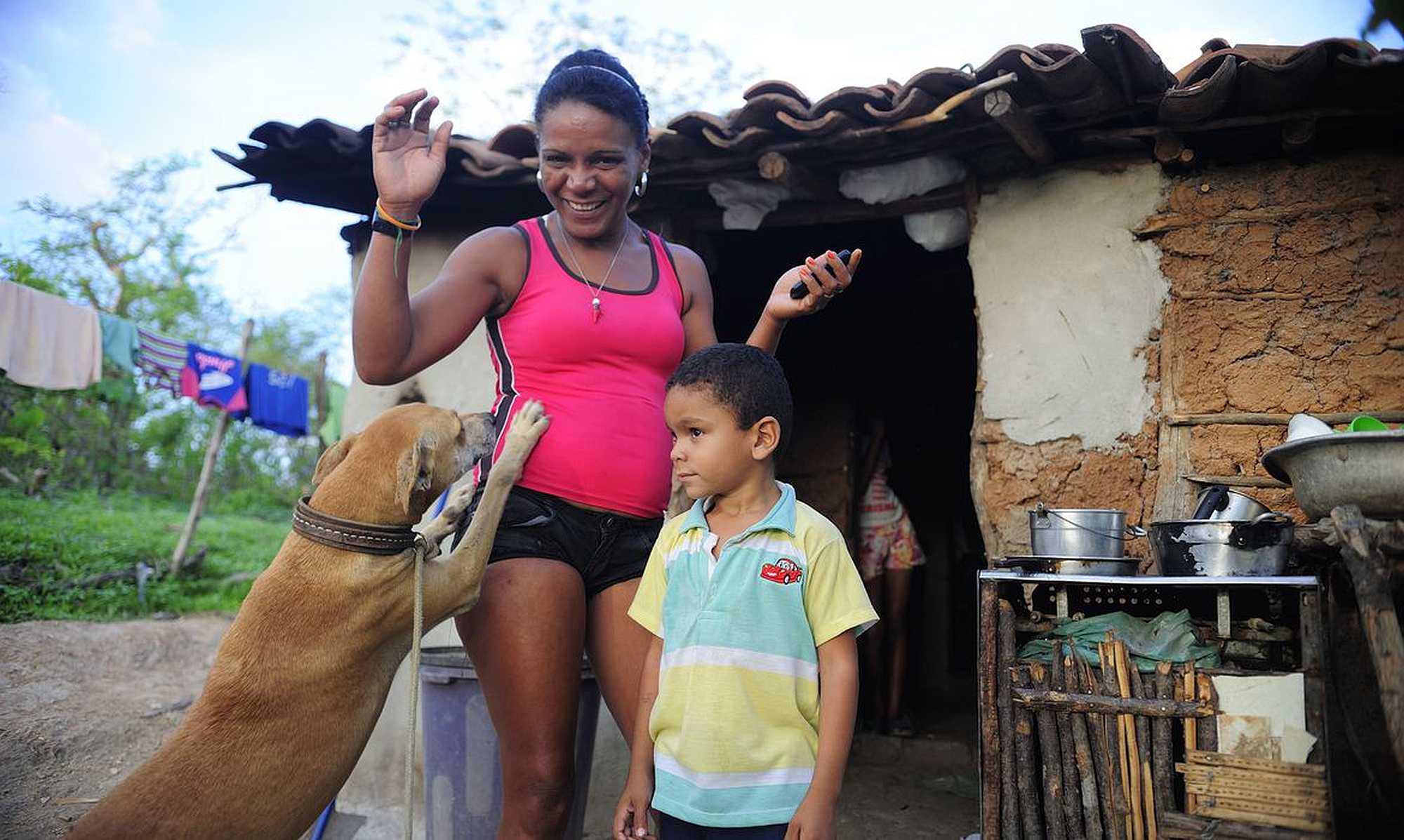Since the mid-1990s, new approaches to poverty reduction have been introduced in countries across Africa, Asia and Latin America. Some have involved income transfer programs that target poorer citizens based on various means tests. Most have targeted female caregivers, primarily mothers.
The most expansive child and family grants are in Brazil, Mexico, Chile, Argentina and South Africa, which has put in place the biggest social provision net in Africa.
The focus of our study was on Brazil and South Africa, two of the countries that have the largest programs globally. The programs were all designed to enhance child welfare.
But as academics who have studied social policy in these countries, we felt it was important to assess the impact of income transfer programs that move beyond a focus on child well-being only.
In particular, we set out to examine if such transfers also elevated women in their homes, societies and political systems.
We set out to compare South Africa’s child support grant and Brazil’s Bolsa Família (Family Allowance).
Bolsa Família was launched in 2003 and is the largest cash transfer program for children and families in the world, reaching more than 46 million people a year in Brazil. The country has a population of 212 million people.
South Africa’s child support grant system was launched in 1998. It makes monthly disbursements to 12.8 million children of a total population of 59.6 million people.
Though they have different population sizes, Brazil and South Africa have a great deal in common. They have similar economic profiles and demographic characteristics. For example, among other similarities, they have the highest levels of income inequality.
We conducted fieldwork in Doornkop, Soweto, a large, densely populated black urban settlement which comprises one third of Johannesburg’s population. We also looked at three municipalities across two states of Northeast Brazil.
We found that regular income assistance boosted the self-esteem and agency of women recipients in both countries. Our findings also underscored the added benefits of Brazil’s cash transfer program because it is embedded in a stronger public health and social service network than is the case in South Africa.
The broader lesson we took from our findings was that income transfer programs must operate in deliberate coordination with ancillary social service institutions to deliver the maximum benefits for women’s empowerment.
Three Dimensions of Empowerment
Our analysis centered on the impact of child and family cash transfers on three dimensions of empowerment.
First, whether adult women beneficiaries experienced heightened independence in financial decision making; second, whether they experienced enhanced control over their bodies; and, finally, whether they experienced psycho-social growth.
This was a departure from the way in which empowerment is usually conceptualized in academic research where the focus tends to be on how and whether gendered norms are changing.
Instead, inspired by economist and philosopher Amartya Sen, we viewed empowerment as the expansion of assets and capabilities that give women more control over their lives, enhancing agency to eliminate inequities and to unleash greater freedoms.
We listened closely to the voices of women recipients, in focus groups, individual conversations and surveys.
In the case of Bolsa Família, we also set out to understand the broader context in which the child support grant system connected with other social services.
Brazil attaches conditions to its child support grants. These include children having to attend school regularly, children under five receiving standard immunizations and prenatal care for pregnant women.
To cover all these bases we interviewed teachers and principals, social workers and primary health care officials.
In South Africa, grant receipt is largely unconditional, except that a child should attend school. We assessed the impact of the child support grant on a range of social and economic indicators such as school attendance, access to health and other services, food security, income and livelihoods and women’s empowerment.
Enhancing Women’s Status
Our findings suggest the social grants triggered positive dynamics for women’s empowerment in both countries, even though the programs were not intended for this purpose.
For example, the cash transfers contributed to advancing the standing of women beneficiaries. We found that:
women were more able to meet basic needs, which reduced stress because they were better able to cope with the precariousness of living in poverty;
most women recipients experienced heightened financial control and decision making vis-à-vis their partners. They withdrew the money themselves and exercised control over spending decisions;
the grants helped boost self esteem and agency. Beneficiaries in both countries reported an increased sense of status in their communities.
In both countries the grants helped reduce poverty levels, particularly among the lower quintile of earners. Both systems helped reduce the depth of poverty among female versus male-headed households.
But it was also clear that Bolsa Família went further than the child support grant in some key areas. For example, it induced beneficiaries to get basic identity documents, which improved access to a wider system of health and social work services. Having documents also meant that women could better navigate bureaucracies and gave them a sense of social recognition and hope.
Next Steps
The findings suggest that social grants can unleash positive dynamics for women’s empowerment even though the programs were not intended for this purpose. Cash transfers don’t in and of themselves transform gender roles.
Nevertheless, they help improve the standing of women beneficiaries in important ways. These include increasing social recognition, reducing levels of poverty and increasing financial control, decision making and agency.
But there are areas in which both Brazil and South Africa could improve. Cash transfers need to be combined with active labor market policies that boost job creation, livelihoods support and social services to enhance the economic inclusion of women.
There need to be skills and training programs, as well as the provision of childcare and transportation.
Finally, our findings point to the need for South Africa to emulate Brazil by getting other government ministries and agencies on board to coordinate the delivery of other social services alongside the grants to boost results.
Leila Patel is a professor of Social Development Studies at University of Johannesburg.
Natasha Borges Sugiyama is an associate professor of Political Science at University of Wisconsin-Milwaukee
Wendy Hunter is a professor of Government at The University of Texas at Austin College of Liberal Arts
This article was originally published in The Conversation. Read the original article here: https://theconversation.com/landmark-study-shows-how-child-grants-empower-women-in-brazil-and-south-africa-157537











